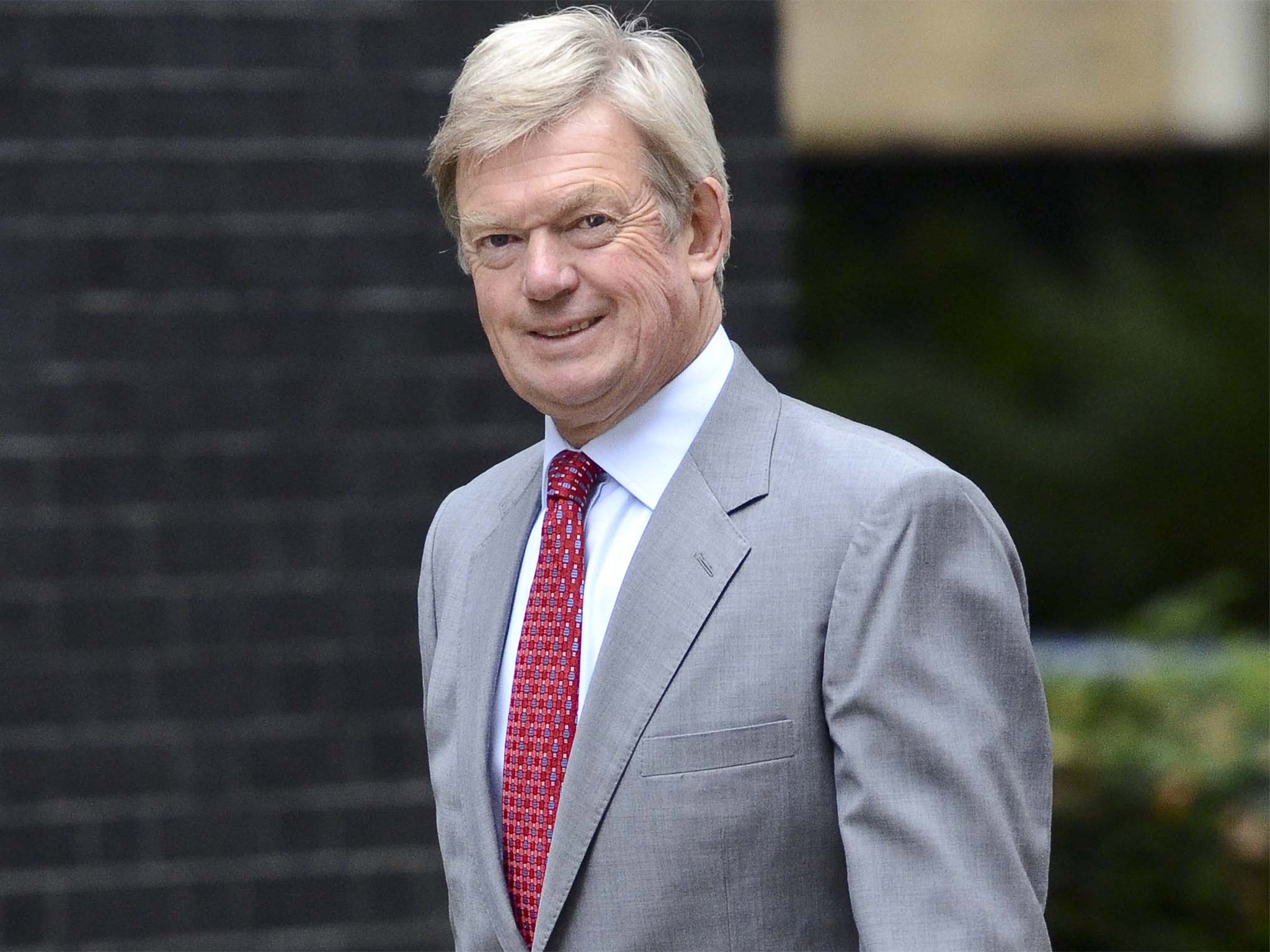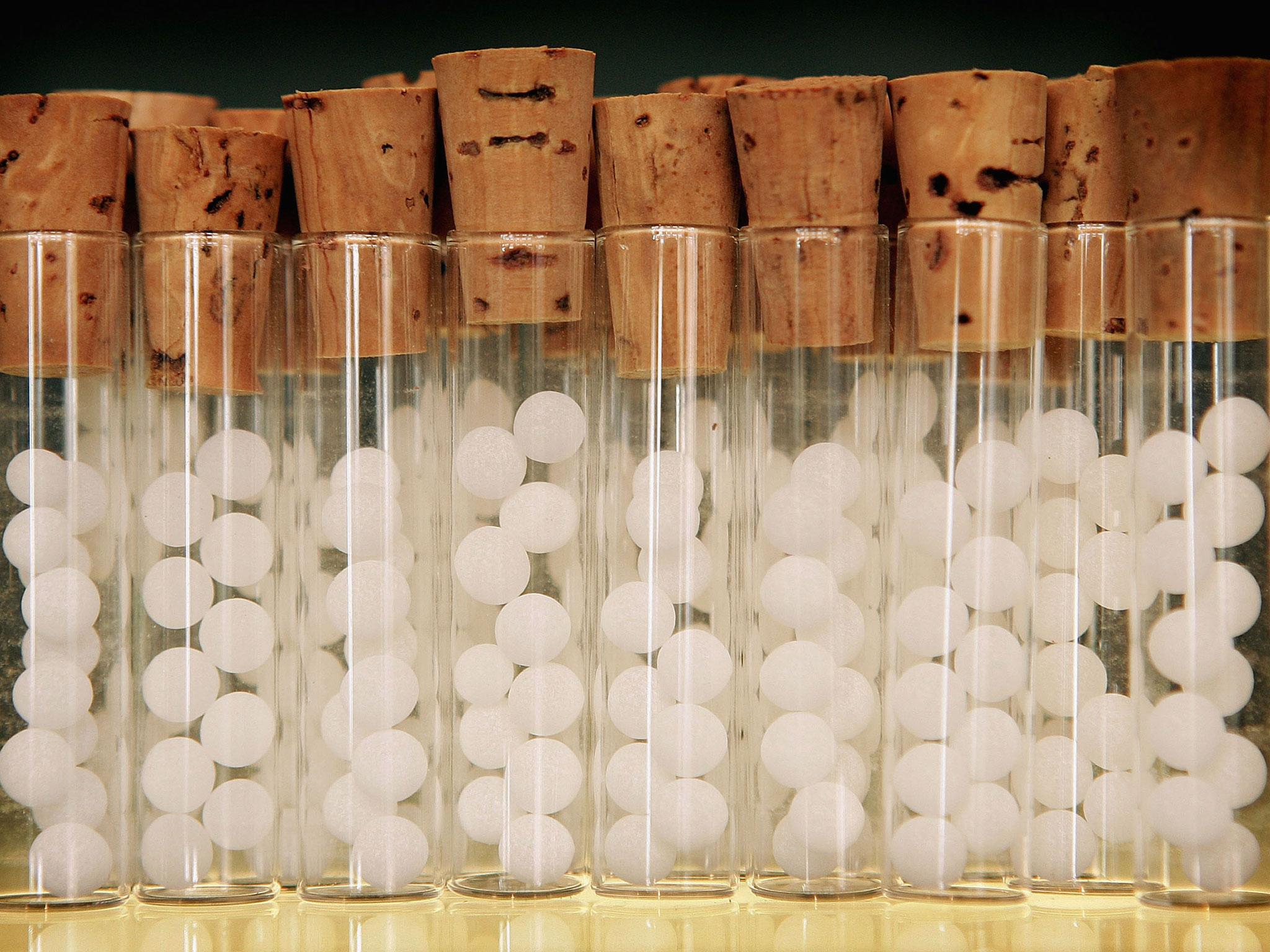David Tredinnick: Advocate of alternative medicines wants to chair House of Commons Health Select Committee
Given his support for homeopathy – recently dismissed by the Chief Medical Officer as 'rubbish' – it is unsurprising his bid has raised eyebrows

Your support helps us to tell the story
From reproductive rights to climate change to Big Tech, The Independent is on the ground when the story is developing. Whether it's investigating the financials of Elon Musk's pro-Trump PAC or producing our latest documentary, 'The A Word', which shines a light on the American women fighting for reproductive rights, we know how important it is to parse out the facts from the messaging.
At such a critical moment in US history, we need reporters on the ground. Your donation allows us to keep sending journalists to speak to both sides of the story.
The Independent is trusted by Americans across the entire political spectrum. And unlike many other quality news outlets, we choose not to lock Americans out of our reporting and analysis with paywalls. We believe quality journalism should be available to everyone, paid for by those who can afford it.
Your support makes all the difference.David Tredinnick, Parliament’s out-spoken advocate of alternative medicines, is well-known among watchers of the respected House of Commons Health Select Committee.
No matter what the topic up for discussion, he has proved himself adept at slipping in a reference to homeopathy or herbal remedies, and the role they might play in alleviating the current problems afflicting the NHS.
Now, the Conservative MP for Bosworth, who has also said that he sees astrology as a “useful diagnostic tool”, wants to chair the committee.
He has secured the required 15 nominations from members of his own party (along with one Labour, one Plaid Cymru and one DUP nod) and go head-to-head next week in a ballot of MPs, against Dr Sarah Wollaston, a former GP who is seeking re-election to the chair.
Given his support for homeopathy – a medical practice dating from the 1790s, recently dismissed by the Chief Medical Officer (CMO) as “rubbish” – it is unsurprising his bid has raised eyebrows in the medical fraternity.
However, he told The Independent he believed resistance to homeopathy was the result “vested interests protecting their interests” and said the NHS should be willing to look at “a wider range of options”.
“In America they’re using an integrated healthcare model in many clinics, bringing together Western treatments, lifestyle changes, meditation, herbal remedies, and homeopathy as well,” he said. “The way forward is a blend and the medical profession are unbelievably defensive on this.”
He added that while his priorities if elected chair would be to listen to other committee members and to look at ways to bring about lifestyle changes to cut obesity and diabetes, he would continue to personally back homeopathy, which he said could be part of the world’s strategy to combat the threat of antibiotic resistance.
“The CMO has said that in the next generation people will be dying for want of antibiotics…we have to be more open-minded,” he said. “If you look at the Indian health system they use a mix of Western medicine, traditional, herbal medicine and homeopathy.
“I don’t accept that the case against homeopathy is a medical case. I think there is good evidence that it’s effective, particularly where other treatments have failed and I think it’s vested interests trying to protect their own turf.”
However, he said that astrology would not be up for discussion at a health committee under his chairmanship.
“I’ve had a look at [astrology] and I agree that it does work. It is a science-based on observation, going back over thousands of years. There are thousands of books on the subject. If you look through them they will broadly say the same thing.
“But I have never said it should be available on the health service.”

Homeopathy is based on the idea that a substance that causes a disease can, diluted, cure it. It is not recommended by the the National Institute of Health and Care Excellence (NICE) for use in any condition, but its practitioners deploy it against a range of ailments, including asthma, arthritis, high blood pressure and even mental health problems.
Many homeopathic products have been diluted several times over – leading some critics to claim that they are, in fact, little more than water. In some parts of the country, the NHS does refer to homeopathic practitioners, but there have been calls for all public spending on the practice to end.
A 2010 House of Commons Science and Technology Committee report on homeopathy said that the treatments performed no better than placebos, and that the principles underpinning it were “scientifically implausible”.
However, it still has many advocates, and is more widely used outside the UK. Perhaps its most prominent defender is Prince Charles, who raised the issue in a ‘black spider memo’ to the then Health Secretary Alan Johnson in 2007. Mr Tredinnick said he had “bumped into” the Prince at times, but had never worked with him on the issue.
The current Health Secretary, Jeremy Hunt, was also a supporter of homeopathy, but has remained quiet on the issue since taking office, saying that he would “follow scientific advice”.
Among the MPs who have nominated Mr Tredinnick are Tory right-winger Peter Bone, and former health minister and hospital doctor Dan Poulter.
Another supporter, James Gray, MP for North Wiltshire, said that nominating someone did not mean supporting everything they believed in.
“It would be quite wrong if I pretended that I either knew about, or supported, his views on a number of health matters,” he said. “I do support homeopathy personally, but that’s neither here nor there.”
Professor Edzard Ernst, emeritus professor at the University of Exeter and a leading researcher of alternative medicines, said: “There is now a very broad consensus among scientists that homeopathic remedies are not effective; any benefits patients perceive is due to placebo and other non-specific effects.”
On the prospect of Mr Tredinnick as chair of the Health Committee he added: “This appointment would surpass everything we recently had in the UK, including Blair as Peace Envoy…it would certainly break my irony-meter”.
Weird science: Homeopathy and astrology
Homeopathy, keenly supported by David Tredinnick, is not recommended by the National Institute of Health and Care Excellence (NICE) for use in any condition. But its practitioners deploy it against a range of ailments, including asthma, arthritis, high blood pressure and even mental health problems.
Many homeopathic products have been diluted several times over – leading some critics to claim that they are, in fact, little more than water. In some parts of the country, the NHS does refer to homeopathic practitioners, but there have been calls for all public spending on the practice to end.
A 2010 House of Commons Science and Technology Committee report on homeopathy said that the treatments performed no better than placebos, and that the principles underpinning it were “scientifically implausible”.
As well as backing homeopathy, Mr Tredinnick raised eyebrows earlier this year by telling the ‘Astrological Journal’ that astrology could be a “useful diagnostic tool enabling us to see strengths and weaknesses via the birth chart”.
“I do foresee that one day astrology will have a role to play in health care,” he added.
He also told the magazine that opposition to astrology was based on “superstition, ignorance and prejudice”.
Last year he told MPs in the House of Commons that “those who look at the map of the sky for the day they were born and receive some professional guidance will find out a lot about themselves and it will make their lives easier.”
Mr Tredinnick, MP for Bosworth since 1987, is a Capricorn.
Join our commenting forum
Join thought-provoking conversations, follow other Independent readers and see their replies
Comments